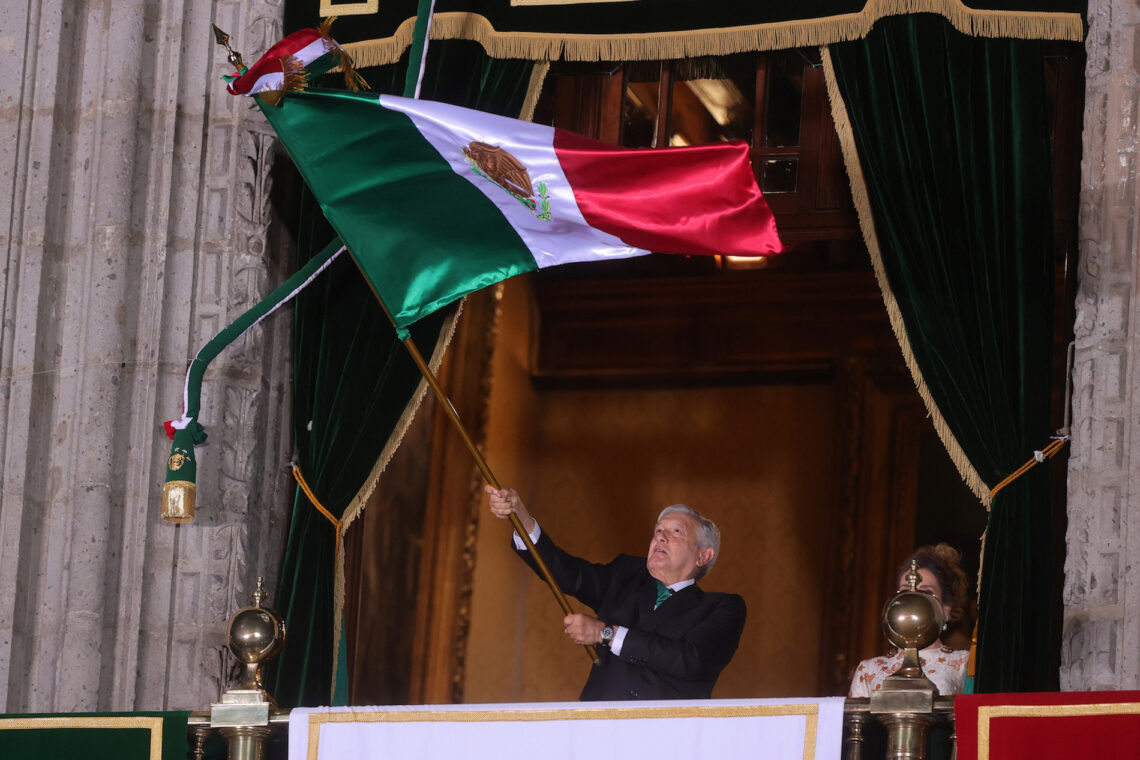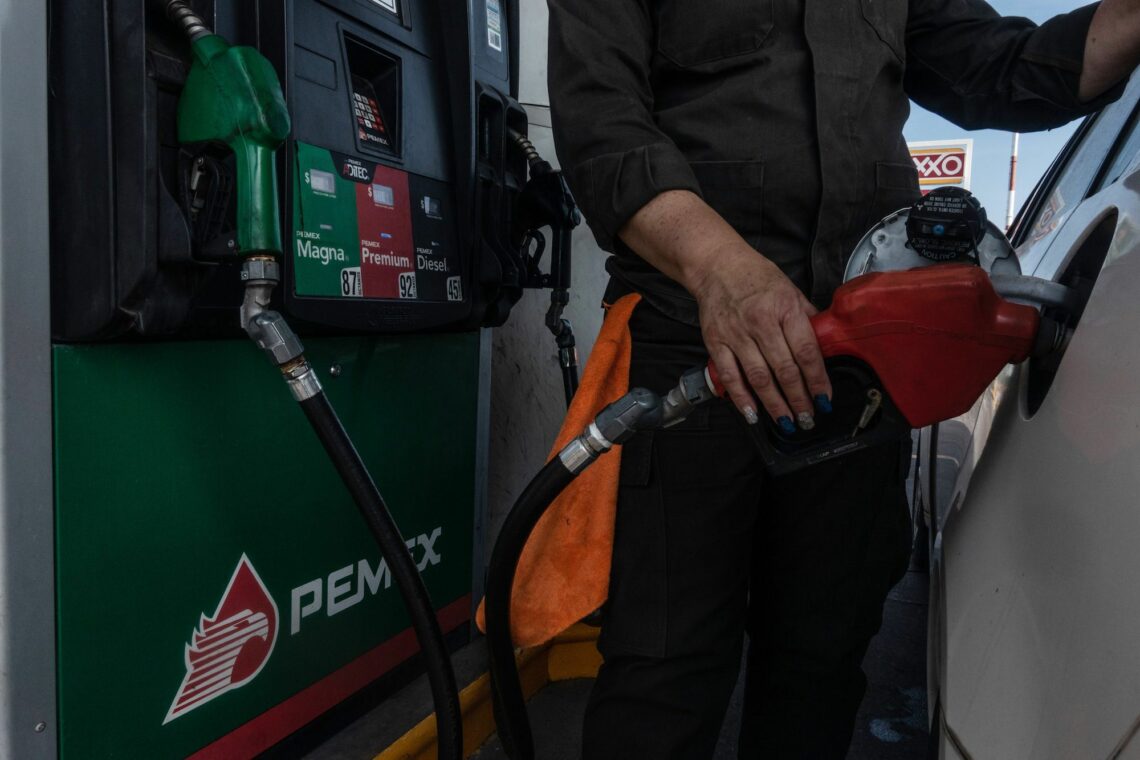Economic and security challenges for AMLO
President Andres Manuel Lopez Obrador has drawn criticism for his economic policy, the mishandling of the pandemic and the worsening security crisis in Mexico. He has moved the country toward a state-driven economy, creating a grim financial outlook.

In a nutshell
- Mexico’s president has investors worried
- Economic policy is focused on state-driven projects
- The pandemic worsened a bad financial picture
Current trends point to a challenging future for Mexico. Going into the second year of his presidency, President Andres Manuel Lopez Obrador is facing criticisms for a nationalistic economic policy in Mexico, mishandling of the coronavirus pandemic and a worsening security crisis.
In 2019, the economy slipped into recession, later exacerbated by the pandemic-induced downturn. Investor and business confidence have declined, as Mexico’s leader increasingly adopted a more antagonistic approach to the private sector. Violence from transnational criminal organizations continues, worsening the already untenable security situation with rising homicide rates.
A months-long fight to choose the leader of the National Regeneration Movement (MORENA), the president’s party, was recently resolved, with the election of a centrist lower house of Congress in October. But polls indicate a minor impact on his popularity, with the latest findings placing his approval ratings at 55 to 60 percent. While Mr. Lopez Obrador’s overall popularity remains high, recent polls find only 40 percent of Mexicans approve of his coronavirus and health policies, 25 percent of his economic plans, and 21 percent of his handling of security. This means that while a majority of Mexicans support the president’s reshaping of the country’s politics and his strategy of grassroots engagement remains popular, a majority also remains concerned about lingering security and economic challenges.
Economic policy
Economic policy in Mexico is becoming increasingly state-driven, highly dependent on hydrocarbons and focused on reviving the state-owned energy company Pemex. The challenge is that Pemex is not as profitable as it once used to be. Moody’s has downgraded the firm to junk status, and in 2019, it lost $36 billion. Projections for 2020 anticipate even bigger losses caused by declining oil demand, due to coronavirus lockdowns and falling global oil prices. Pemex’s debt is reportedly over $105 billion, with an additional $77 billion in labor obligations. Compared to other global oil companies, it is simply not as competitive.
Adding to Pemex’s woes is the growing unease among Mexican and foreign investors in dealing with the government. A recent missive from the office of the Mexican president reportedly directs authorities to use all available regulatory resources, up to constitutional reform, to shield Pemex and the state-owned electricity company Federal Electricity Commission (CFE) from external competition. Authorities are tasked with blocking new electricity auctions, canceling oil rounds and blocking renewable energy programs.
A new initiative is poised to undermine investor confidence in Mexico’s economy.
This drew a significant response from over 40 members of the United States Congress, who sent a bipartisan letter alleging that it violates the intention of the newly implemented U.S. Mexico Canada Agreement (USMCA). American officials are concerned, as Mexico is the largest export market for U.S. petroleum and a growing destination for American natural gas.
President Lopez Obrador’s reversal of his predecessor’s energy reforms is not new, as his administration has already been stalling and canceling existing permits to foreign energy companies. But this new initiative is poised to undermine investor confidence in Mexico’s economy. Adding to this, the CFE issued decrees during the pandemic prohibiting renewable energy projects from connecting to the national grid, claiming that solar and wind energy is unreliable and too risky to use during a health crisis. Lawsuits have already been filed by private companies, and an injunction has been presented before the Mexican Supreme Court by Mexico’s antitrust commission arguing the CFE is operating as a monopoly.
Similarly, the government is also taking an aggressive approach to foreign mining companies and not issuing new exploration and mining concessions. Considering that the majority of mining companies operating in Mexico are Canadian, this puts the future spirit of the USMCA on precarious grounds.
In terms of resources, Mexico is the world’s top silver producer and the second-largest producer of gold in Latin America. It is also the second-largest producer of fluorite, a key component of an asthma medication used to treat coronavirus patients. During the initial lockdown in Mexico, the mining sector was declared nonessential and fluorite production decreased.
In 2018, the MORENA-dominated Senate introduced a mining reform bill to transform industry practices, by prohibiting mining within certain areas of Mexico, requiring indigenous approval for projects, and mandating a social impact assessment of mining projects. While the bill was struck down in Congress, President Lopez Obrador’s continued mining policies reflect the sentiment of the legislation.
Eroding confidence
State-funded infrastructure projects are emerging as a major priority for the current administration. Already in construction is an $8 billion oil refinery put together by Pemex, three major railway projects, and a new airport outside of Mexico City, under construction by the military. Recently, Mr. Lopez Obrador announced several dozen more initiatives to revitalize the coronavirus-plagued economy. Projects in the communications, energy, water, and environmental sectors are expected to be launched shortly.
Critics are concerned that these initiatives (and the strategy behind these policies) will do little to spur economic growth or restore investor confidence. The Dos Bocas oil refinery will be housed in his home state of Tabasco, and is viewed as a political move to cement the president’s legacy. Moreover, the $8 billion price tag is anticipated to increase and many perceive the 2023 forecasted timeline as unrealistic.

Investments in hydrocarbons are seen as flawed policy at a time when global oil prices and demand have slumped. Similar concerns surround the capital city airport. After his election but before his swearing in, the president-elect had his party facilitate a referendum on the future of a previous airport facility already under construction. With roughly 1 percent turnout, Mexico’s voters rejected the project and the president-elect shut down construction at a cost of $5 billion.
This is not the only instance of a major project being shut down after a citizen’s referendum. A billion dollar beverage facility in Mexicali, owned by Constellation Brands, Inc., was shut down midway through development after a plebiscite voted against its contract. While government officials often point to foreign direct investment growth increasing 4.2 percent in 2019, the wider panorama paints a picture of low investor confidence.
Security and health crisis
On security, Mexico’s issues with transnational criminal organizations remain hard to solve. The recent U.S. arrest of former Secretary of National Defense Salvador Cienfuegos for various drug crimes underscores how deeply embedded criminal organizations have become in the Mexican government. Just 10 months ago, another senior official was indicted by American authorities for taking bribes and protecting the Sinaloa cartel. Moreover, the administration faces the difficult task of rooting out corruption without upsetting a long-standing balance in Mexico that has maintained the military’s autonomy.
Mexico’s coronavirus challenges are still dire. As of early November, Mexico has over 900,000 reported infections and 92,000 deaths. Reliable news reporting and Mexican authorities confirm that the official total does not capture the full extent of the spread, due to low testing capabilities. Compared to the Organisation for Economic Co-operation and Development (OECD) member states, Mexico ranks last in terms of testing numbers, with just 0.4 tests per 1,000 people, yet has a 41 percent positivity rate. When estimating the actual death rate, Mexico’s population is particularly vulnerable, with its high rate of comorbidities such as obesity and diabetes.
The administration must root out corruption without upsetting a long-standing balance that has maintained the military’s autonomy.
Economic projections paint a concerning picture for the near- and medium-term future. Going into the pandemic, the economy was already in a minor recession and is now expected to contract by 10 percent by the end of 2020. While third quarter growth saw a 12 percent increase due to the U.S.’s reopening and its stimulus spending, Mexico’s year-end losses will be its worst since the Great Depression. An estimated 21 million people are expected to be unemployed, and roughly 60 percent work in the informal sector, where unemployment is more difficult to measure.
Scenarios
It seems unlikely the government will prioritize investor and private-sector relations. Instead, it will continue focusing on infrastructure and energy projects targeted at cementing MORENA's political legacy.
There is little likelihood that the recent U.S. elections will have a significant impact on the bilateral relationship. We should not expect major fireworks with the change in Washington. While the incoming Biden Administration presents a new worldview and has voiced concern with Mr. Lopez Obrador’s close relationship with President Trump, both sides are more than likely to find a way of bridging the gap.
In that vein, the American focus on addressing Mexico’s security- and narcotics-related challenges will not change either. In 2019, 70,000 Americans overdosed from drugs, including 50,000 from opioids – a figure that could rise due to the pandemic lockdown.
In the future, unlawful Mexican migration to the U.S. should be expected to increase in light of the economic downturn and rising insecurity. Previous economic crises have been followed by prolonged periods of movement northward. An uptick in single adult males apprehended at the southern U.S. border is already occurring, and this trend reflects similar migration waves following the 1982 debt crisis and the 1994 peso crisis.






